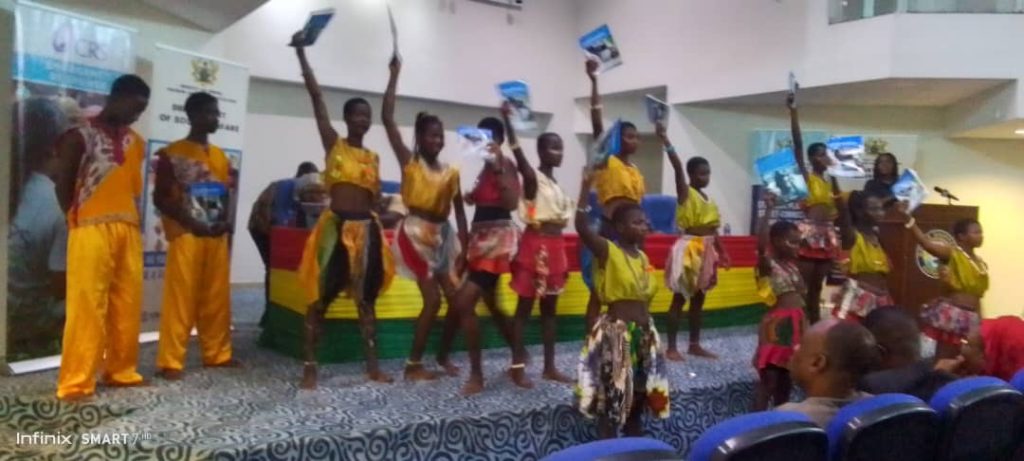By Eunice Hilda A. Mensah
Accra, Aug. 04, GNA- Madam Dakoa Newman, the Minister of Gender, Children and Social Protection, has launched a five-year Strategic Plan to transform and empower street-connected children and young persons through a comprehensive rehabilitation approach.
The plan aims to address the multifaceted challenges faced by street-connected children and young persons nationwide.
Speaking at the launch, she said the strategic plan emphasised the importance of inter-sectorial collaboration and implementation for families to take responsibility of their children and promote the strengthening of family relationships.
“At the heart of this plan and other government efforts is the expectation that street-connected children and young persons should enjoy the same rights as any child in Ghana, free from discrimination and sense of belonging, respect, love, acceptance, and understanding of their responsibilities,” she said.
The plan, she explained would serve as a strategic guide for stakeholders to ensure effective implementation, and promote public awareness of the issues faced by street-connected children and young persons.
Madam Newman noted that a survey conducted in 2011 by the Department of Social Welfare, in Accra identified approximately 61,492 individuals under 18 years engaged in street work with 65 per cent of them migrating from rural areas and relocating to urban centers.
In 2015 and 2017, she said her Ministry launched “Operation Go Back to School” and “Operation Get Off the Streets for a Better Life” and a check in 2017 revealed that a total of 4,853 street persons were identified where 4,165 were eligible for formal education, yet less than 200 were reunited with their families and enrolled in school.
The exercise also identified 46 Nigerien street beggars, comprising 20 adults and 26 children, who were subsequently repatriated in 2017.
Madam Newman stated that in April 2021, the Ministry of National Security, through a monitoring exercise, identified 94 hotspots across 29 Metropolitan, Municipal, and District Assemblies, counting 2,257 children and families on the streets, most of whom were of foreign descent.
“In October 2021, three local non-profit organisations thus the Chance for Children, Safe-Child Advocacy, and Muslim Family Counselling Services within the Central Business District of Kumasi, revealed that among the 6,693 street-connected children and young persons counted, 50.6 per cent were not engaged in any economic activity, 24.5 per cent were involved in casual work, 10.9 per cent were begging for alms, and 7.4 per cent and 4.3 per cent were engaged in movable and fixed businesses respectively.
“Again, 158 female street-connected children were observed to be engaged in commercial sex work,” she noted.

On June 7, 2022, the Embassy of Niger, in collaboration with the Ghana Immigration Service and other relevant stakeholders, repatriated 1,320 Nigeriens to their home country, she added.
The Minister thanked the Catholic Relief Services for their financial support and Street-Connected Children and young persons for their invaluable technical assistance in developing the strategic plan.
She appealed to civil society organisations, corporate bodies, development partners, and other stakeholders to contribute to the well-coordination and implementation of the plan.
Reverend Dr Comfort Asare, the Director, Department of Social Welfare, said children and young persons living or working on the streets, often begged for alms in the company of adults, thereby worsening their situation.
She said the vision of the strategic plan was for all street-connected children and young persons to have essential services and grow in safe and nurturing environment to develop their full potential for responsible adulthood.
Dr Ernestina Korleki Tetteh, Convener, Coalition for Street-Connected Children, said developing the plan had been a long journey involving researchers, non-governmental organisations, and the Ministry.
“But we are glad to be here and we commend the Ministry and Department of Social Welfare for their commitment to this course,” she said.
GNA